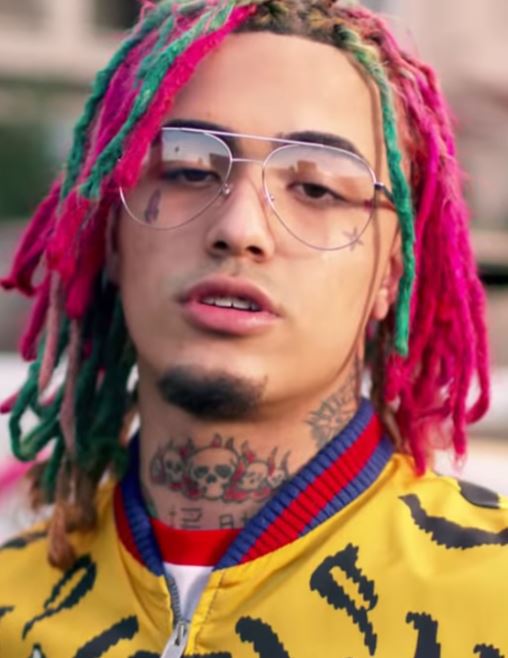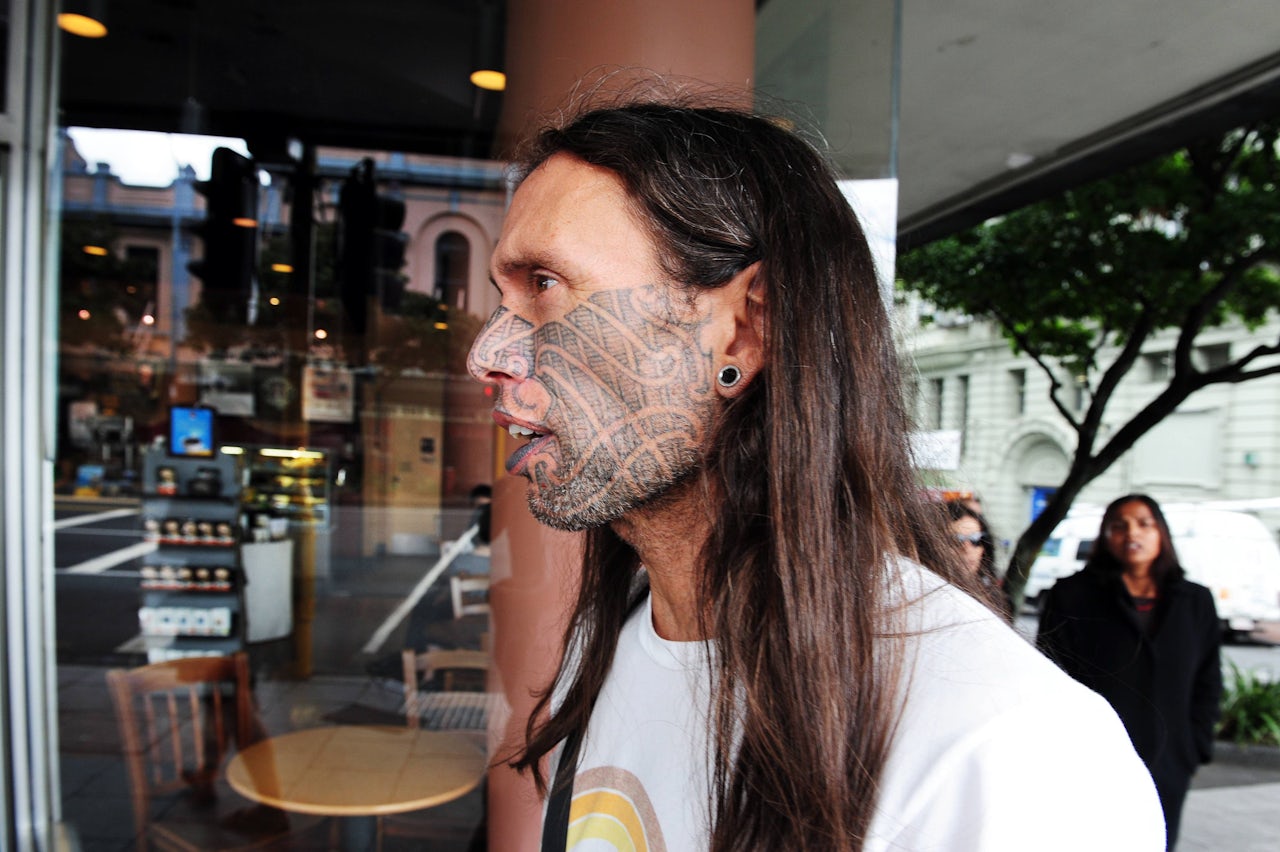When you think about rappers, the first image that comes to mind might be a guy with baggy clothes, gold chains, and maybe some serious facial ink. But what happens when a white rapper steps into the spotlight with tattoos boldly decorating their face? Yeah, it's a conversation starter, alright. Welcome to the world of white rappers with tattoos on their face—a subculture that’s shaking up the music industry and challenging traditional norms. This isn’t just about music; it’s about identity, expression, and breaking down barriers.
Picture this: a white guy stepping onto the stage with ink covering his cheeks, forehead, and even his chin. The crowd goes wild—not because of shock, but because of the raw authenticity and boldness he brings. This phenomenon is more than just a trend; it’s a statement. In a world where diversity in rap music is growing, these artists are proving that talent knows no boundaries. Whether you love them or hate them, they’re here to stay.
Now, before we dive deep into the world of white rappers with tattoos on their face, let’s get one thing straight: this isn’t about glorifying controversy for the sake of it. It’s about understanding the artistry behind the ink, the stories they tell, and the impact they have on fans worldwide. So, whether you’re a die-hard rap fan or just curious about the rise of this unique subculture, buckle up because we’re about to take a wild ride through the world of white rappers redefining the game.
Read also:Andy Reids Punt Pass Kick Photo The Untold Story Behind The Iconic Moment
Who Are These White Rappers with Tattoos on Their Face?
Let’s break it down, shall we? White rappers with tattoos on their face aren’t just random dudes trying to look edgy. These artists have built their careers on authenticity, skill, and a willingness to push boundaries. They come from different backgrounds, but they share one thing in common: a fierce dedication to their craft. From underground sensations to mainstream stars, these rappers are making waves in the music industry.
Some of them started as outsiders, struggling to find their place in a genre dominated by Black artists. But instead of conforming, they embraced their individuality. And hey, if that means getting inked up to express themselves, then so be it. These rappers aren’t just about the music—they’re about creating a visual identity that matches their lyrical prowess. So, who exactly are we talking about here?
Meet the Artists: A Biographical Overview
To truly understand the impact of white rappers with tattoos on their face, let’s take a closer look at some of the biggest names in the game. Here’s a quick rundown:
- Machine Gun Kelly: A name you can’t ignore. Known for his aggressive style and bold tattoos, MGK has been a controversial figure in the rap world. But beneath the ink lies a talented artist with a knack for storytelling.
- Post Malone: While his facial tattoos are more subtle, Post Malone’s body art is a defining part of his persona. His unique style blends rap with pop, making him a crossover sensation.
- Logic: With a more understated approach to facial tattoos, Logic uses his platform to address social issues, proving that rap isn’t just about aesthetics.
These artists, among others, are changing the game by embracing their individuality and challenging stereotypes. Their stories are as diverse as their music, and their tattoos often carry deep meaning.
The Cultural Impact: How Tattoos Redefine Identity
Tattoos aren’t just for decoration; they’re a form of self-expression. For white rappers with tattoos on their face, the ink serves as a canvas for their stories, struggles, and triumphs. In a genre where authenticity is key, these artists use their tattoos to connect with their audience on a deeper level.
But it’s not all about the art itself. The cultural impact of facial tattoos in the rap world is significant. They challenge societal norms and encourage fans to embrace their true selves. In a world where conformity often reigns supreme, these rappers are leading the charge toward individuality.
Read also:Alana Springsteen Bruce Springsteens Daughter And Her Journey In The Spotlight
Breaking Down Stereotypes: The Role of Tattoos in Rap Music
Let’s face it: tattoos have long been associated with rebellion and nonconformity. But when a white rapper with tattoos on their face steps into the spotlight, it raises questions about authenticity and cultural appropriation. Are they paying homage to the roots of rap music, or are they exploiting it for their own gain?
These debates are valid, and they highlight the importance of understanding the cultural context behind the music. Many white rappers with tattoos on their face use their platform to address these issues head-on, fostering meaningful conversations about race, identity, and representation in the music industry.
The Rise of White Rappers: A Historical Perspective
The history of white rappers is a fascinating one. From the early days of Eminem to the current wave of artists, the evolution of white rappers in the rap world is a testament to the genre’s inclusivity. But what about those with tattoos on their face? How did they carve out their niche in a genre dominated by Black artists?
It all started with a few trailblazers who dared to challenge the status quo. They brought a fresh perspective to the table, blending traditional rap elements with their own unique style. And as the years went by, more and more white rappers with tattoos on their face emerged, each bringing their own flavor to the mix.
From Outsiders to Mainstream Stars: The Journey
The journey from outsider to mainstream star isn’t an easy one. White rappers with tattoos on their face often face criticism and skepticism from both fans and critics. But instead of backing down, they use these challenges as fuel for their fire. They work harder, write better lyrics, and push the boundaries of what it means to be a rapper.
And let’s not forget the fans. Without their support, these artists wouldn’t have the platform they do today. The connection between artist and audience is what drives the success of white rappers with tattoos on their face, and it’s a bond that continues to grow stronger with each passing year.
The Art of Tattooing: What Do These Tattoos Mean?
Now, let’s talk about the tattoos themselves. What do they mean? Are they random designs, or do they carry deeper significance? For many white rappers with tattoos on their face, the ink is a reflection of their personal journey. Each tattoo tells a story, whether it’s about love, loss, triumph, or struggle.
Take Machine Gun Kelly, for example. His facial tattoos aren’t just for show; they represent his battles with self-doubt and his journey toward self-acceptance. Similarly, Post Malone’s tattoos serve as a reminder of his roots and the people who inspired him along the way.
Choosing the Right Design: The Process
Getting a tattoo, especially on your face, is no small decision. For white rappers, the process involves careful consideration and collaboration with skilled tattoo artists. They choose designs that resonate with their personal experiences and align with their artistic vision.
And let’s not forget the importance of quality. These rappers work with some of the best tattoo artists in the business, ensuring that their ink is both meaningful and visually stunning. It’s not just about the design; it’s about the craftsmanship and the story behind it.
The Music: What Makes Them Stand Out?
Of course, the music is what really sets white rappers with tattoos on their face apart. Their unique style blends traditional rap elements with modern influences, creating a sound that’s both familiar and fresh. But what exactly makes their music so special?
It’s all about the lyrics. These rappers aren’t afraid to tackle tough topics, from mental health to social justice. Their honesty and vulnerability resonate with fans who appreciate authenticity in art. And let’s not forget the beats—these guys know how to craft a track that gets people moving.
Collaborations and Crossovers: Expanding the Audience
Collaborations with artists from different genres have helped white rappers with tattoos on their face reach new audiences. By working with pop stars, rock bands, and even electronic DJs, they’ve expanded their reach and introduced their music to fans who might not have discovered them otherwise.
These collaborations aren’t just about expanding the audience; they’re about breaking down barriers and fostering creativity. When artists from different backgrounds come together, the result is often something truly special.
The Future of White Rappers with Tattoos on Their Face
So, where does the future lie for white rappers with tattoos on their face? The possibilities are endless. As the music industry continues to evolve, these artists are well-positioned to lead the charge toward greater inclusivity and diversity.
With new technology and platforms emerging, the opportunities for creativity and innovation are limitless. Whether it’s through virtual concerts, interactive experiences, or even NFTs, white rappers with tattoos on their face are poised to make a lasting impact on the music world.
What’s Next? The Evolution Continues
The evolution of white rappers with tattoos on their face is far from over. As new artists emerge and existing ones continue to grow, the genre will undoubtedly see new innovations and trends. But one thing is certain: these artists will continue to challenge norms and push boundaries, inspiring fans around the world to do the same.
Conclusion: Embracing Individuality and Authenticity
In a world where conformity often wins, white rappers with tattoos on their face are shining examples of what happens when you embrace your individuality. Through their music, tattoos, and personal stories, they’ve created a subculture that challenges stereotypes and encourages fans to be true to themselves.
So, what can you do? If you’re a fan, show your support by listening to their music, attending their concerts, and engaging with their content. If you’re an aspiring artist, don’t be afraid to express yourself and tell your story. The world needs more authenticity, and these rappers are proof that it can lead to greatness.
And hey, if you’re still skeptical, that’s okay. But one thing’s for sure: white rappers with tattoos on their face aren’t going anywhere anytime soon. So, why not join the conversation and see what all the fuss is about?
Table of Contents
- Who Are These White Rappers with Tattoos on Their Face?
- The Cultural Impact: How Tattoos Redefine Identity
- The Rise of White Rappers: A Historical Perspective
- The Art of Tattooing: What Do These Tattoos Mean?
- The Music: What Makes Them Stand Out?
- The Future of White Rappers with Tattoos on Their Face
- Conclusion: Embracing Individuality and Authenticity
- Biographical Overview
- Breaking Down Stereotypes: The Role of Tattoos in Rap Music
- From Outsiders to Mainstream Stars: The Journey
So there you have it—the world of white rappers with tattoos on their face in all its glory. Whether you love them or hate them, one thing’s for sure: they’re here to stay, and they’re changing the game one tattoo at a time. Keep it real, keep it raw, and most importantly, keep it authentic.


